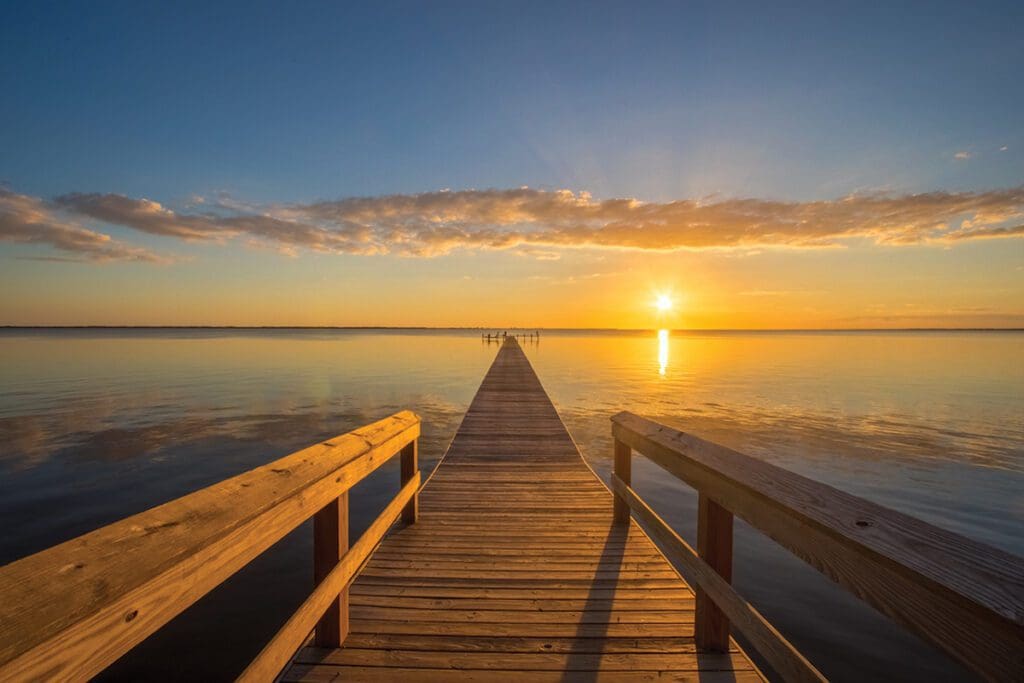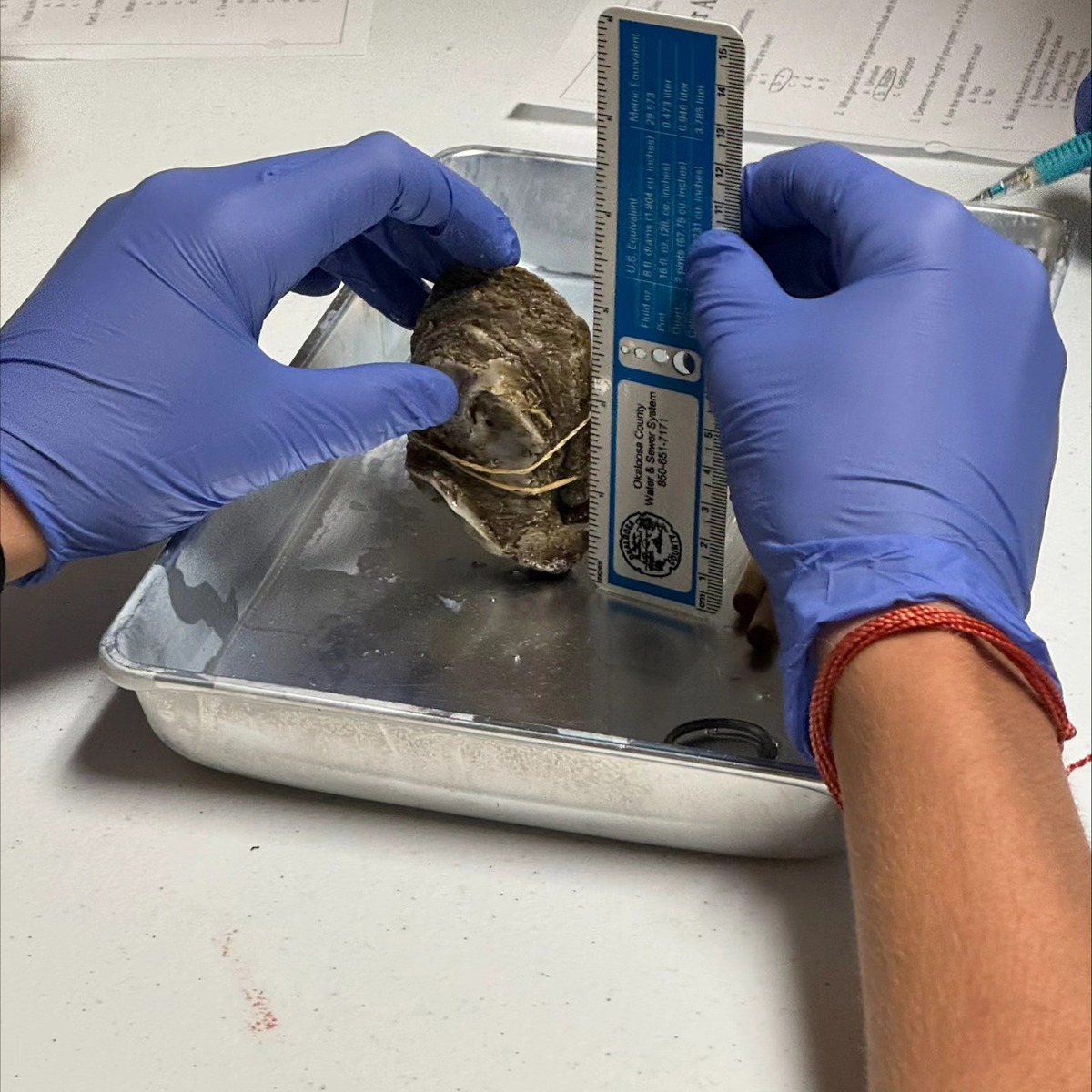By Heather Bennett Eye
The ecosystem provided by the Choctawhatchee Bay and surrounding areas is vital for environmental balance and biodiversity, with its waterways and estuaries serving as crucial components. These aquatic habitats not only support diverse life forms but also play a key role in regulating temperature, nutrient cycles, and serve as breeding grounds. Additionally, these waterways are integral to the local economy, contributing to fishing, recreation, and tourism. Preserving their health is essential for clean water sources, flood mitigation, and regional resilience. Sustainable practices and conservation efforts are crucial for ensuring the ongoing well-being of this important ecosystem.
 The Choctawhatchee Basin Alliance (CBA) is a nonprofit organization formed in 1996 dedicated to promoting swimmable, fishable waterways in Northwest Florida through monitoring, education, restoration and research. To inspire water stewardship, they are working to grow a network of supporters to protect these precious natural resources. Here are some of the recent ways they’ve been able to drive that mission forward.
The Choctawhatchee Basin Alliance (CBA) is a nonprofit organization formed in 1996 dedicated to promoting swimmable, fishable waterways in Northwest Florida through monitoring, education, restoration and research. To inspire water stewardship, they are working to grow a network of supporters to protect these precious natural resources. Here are some of the recent ways they’ve been able to drive that mission forward.
Through their education efforts, the CBA was recently able to bring hands-on science learning to over 3,600 students in our community through their Grasses in Classes program. Students grow shoreline grasses at their school, tend to salt marsh nurseries throughout the year, and receive monthly education on local estuarine topics. At the end of the school year, students will then plant their shoreline grasses at a designated salt marsh restoration site along Choctawhatchee Bay. This helps support the CBA’s living shoreline initiative.
 In October, CBA’s Executive Director Alison McDowell & Senior Restoration Program Manager Rachel Gwin, attended the 2023 Living Shorelines Tech Transfer Workshop, an event hosted by Restore America’s Estuaries and Galveston Bay Foundation. Alison presented on how CBA sources plants for restoration, and they were able to see Galveston Bay Foundation sites to learn about oyster recycling, conservation lands and education programs.
In October, CBA’s Executive Director Alison McDowell & Senior Restoration Program Manager Rachel Gwin, attended the 2023 Living Shorelines Tech Transfer Workshop, an event hosted by Restore America’s Estuaries and Galveston Bay Foundation. Alison presented on how CBA sources plants for restoration, and they were able to see Galveston Bay Foundation sites to learn about oyster recycling, conservation lands and education programs.
The CBA relies on sponsors to enable their initiatives. One admirable supporter is Islander Coastal Outfitter, situated at the Boardwalk on Okaloosa Island. As a proud member of 1% For the Planet, they dedicate 1% of their annual sales to the CBA. Beyond financial support, they actively volunteer and have made a substantial impact by assisting with Grasses in Classes this year.
Another outstanding supporter is the beach and fishing apparel company, FL BABE. They endorse four nonprofits, including the CBA. In addition to shopping on their website, you can also explore information about conservation efforts across Florida on their blog. They’ve even featured our CBA in a November article.
If you’re interested in supporting the CBA by volunteering, there are openings currently available with the Water Quality Monitoring and Monofilament Recycling initiatives. The CBA collaborates with the UF Florida LAKEWATCH program to conduct monthly water quality tests at 130 stations spanning Choctawhatchee Bay, the Choctawhatchee River, and the coastal dune lakes of Walton County. The CBA is actively seeking dedicated citizen scientists to contribute their valuable efforts and help ensure the program’s effectiveness.
The monofilament recycling bins are located at Nick’s Seafood Restaurant, Cessna Park, Thomas Pilcher Park, various locations along Destin Harbor, Bluewater Bay Marina Complex, Veterans Park and Ross Marler Park on Okaloosa Island. These bins play a crucial role in preventing fishing line from finding its way into the water where it poses a threat to wildlife causing entanglement, starvation, loss of flipper, tail, or wings, and can even cause death. Volunteers are needed to maintain the bins, aid in outreach efforts and occasionally help with beach cleanups.
For additional details on ongoing and upcoming initiatives and projects undertaken by the CBA, as well as volunteering opportunities, please explore basinalliance.org. Remember that we coexist with a diverse range of wildlife that depends on the same water sources. Our actions can make a positive impact on their habitats. By being more mindful, we can contribute to the well-being of the creatures that share our environment.
The post Sustaining an Ecosystem Through Stewardship appeared first on South Walton Connections.


Be the first to comment on "Sustaining an Ecosystem Through Stewardship"